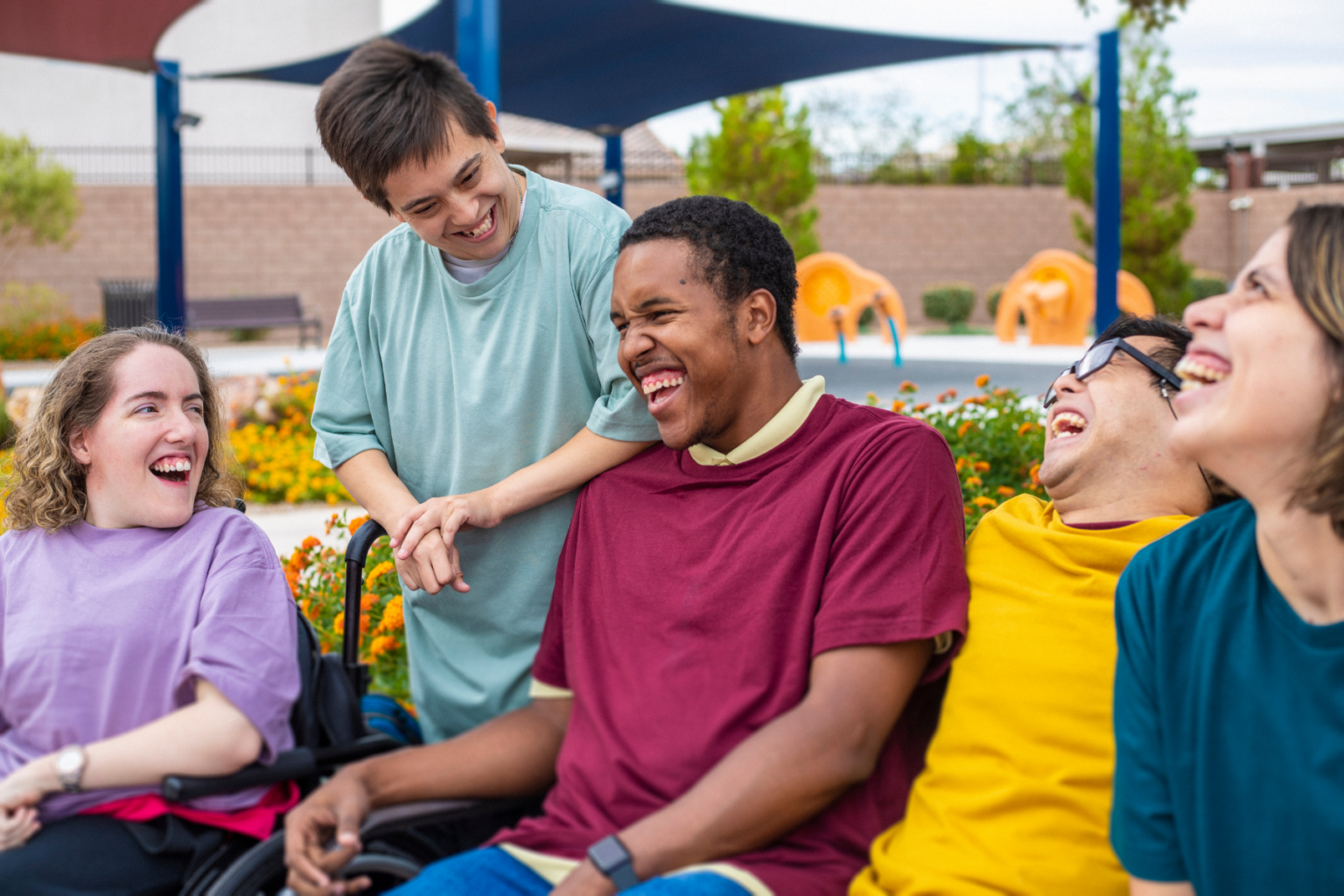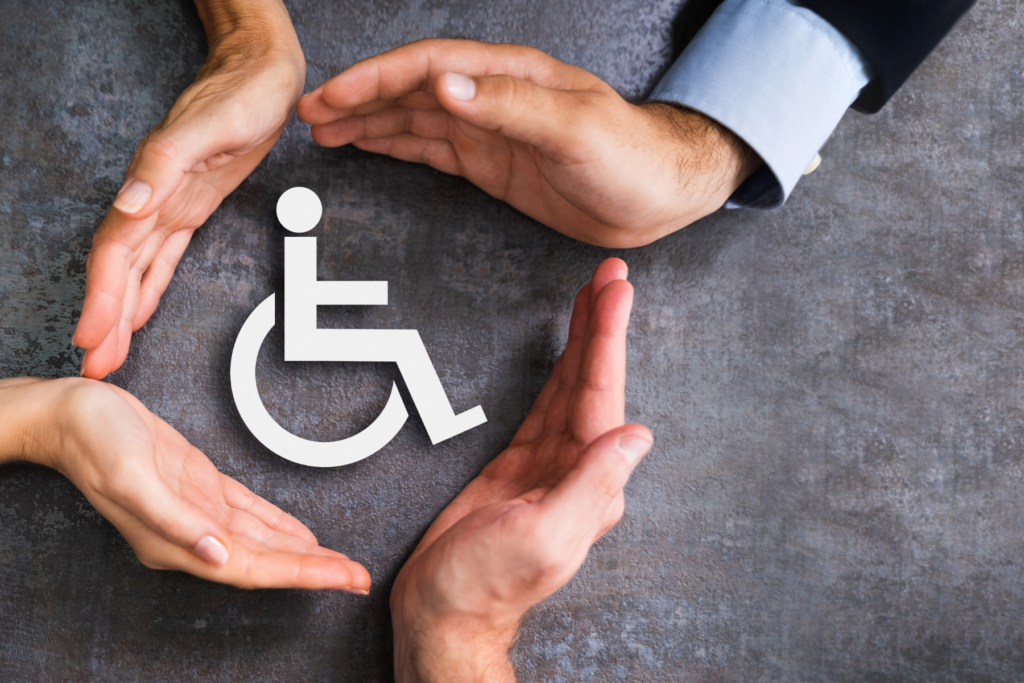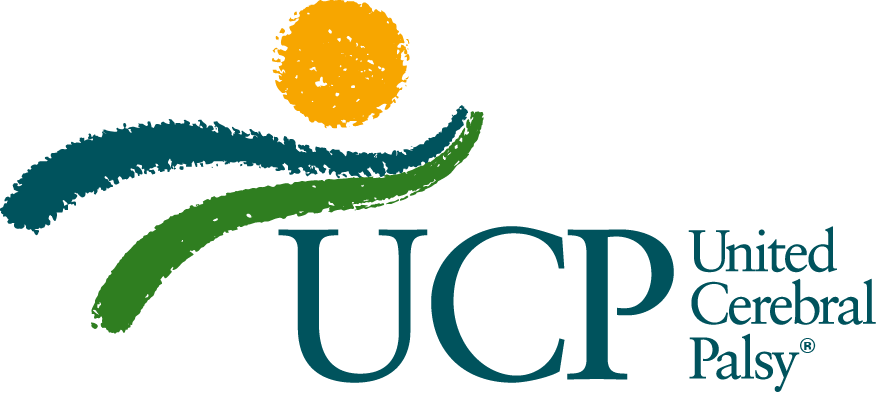United Cerebral Palsy: Comprehensive Resources & Advocacy for People with Disabilities
Every day, our network of affiliates help children access early intervention, assist adults in finding meaningful employment, and provide essential services like therapy, housing support and assistive technology to people of all ages.
United Cerebral Palsy (UCP) is an international network of independent affiliates, each deeply rooted in the communities they serve. While UCP National focuses on advocacy, awareness and resource development, it’s our affiliates — many of which have been around as long as the national organization — that provide direct services to people with disabilities.
They support individuals with cerebral palsy, autism, Down syndrome, spina bifida, intellectual disabilities, epilepsy, and many other developmental and neurological conditions.

Each affiliate tailors its programs to meet the unique needs of its community, but they all share the same mission: to promote inclusion, accessibility and opportunity. Whether it’s helping a child communicate for the first time, supporting a young adult as they transition to independent living, or advocating for policy changes that improve quality of life, our affiliates are on the ground making a real impact every day.
What is Cerebral Palsy?
Cerebral palsy (CP) is a group of neurological disorders that affect movement, muscle tone and coordination. It is caused by abnormal brain development or brain damage before, during, or shortly after birth. CP is a lifelong condition, but its effects vary greatly among individuals.
The Diversity of CP
CP affects people in different ways, ranging from mild motor challenges to significant mobility and communication impairments. Some individuals walk independently, while others use assistive devices or wheelchairs.
Types of CP include:
- Spastic CP – The most common form, causing stiff muscles and difficulty with movement.
- Dyskinetic CP – Characterized by involuntary movements, making it difficult to control arms, hands, or legs.
- Ataxic CP – Affects balance and coordination, leading to shaky movements and difficulty with fine motor skills.
- Mixed CP – A combination of two or more types of CP.
While CP primarily affects movement, many individuals also experience related conditions such as intellectual disabilities, epilepsy, vision or hearing impairments and speech difficulties.
UCP supports individuals with CP and other disabilities, advocating for services, accessibility and inclusion across all aspects of life.
What Other Disabilities Does UCP Support?
UCP affiliates serve and advocate for individuals with a wide range of intellectual and developmental disabilities (IDD) in addition to CP. These disabilities can affect cognitive function, mobility, communication, and daily living skills.
UCP Affiliates provide services and support for:
- Cerebral Palsy (CP) across the lifespan
- Intellectual Disabilities (ID)
- Intellectual and Developmental Disabilities (IDD)
- Autism Spectrum Disorder (ASD)
- Down Syndrome
- Spina Bifida
- Fetal Alcohol Spectrum Disorders (FASD)
- Fragile X Syndrome
- Epilepsy & Seizure Disorders
- Hydrocephalus
- Traumatic Brain Injury (TBI) in Childhood
- Rett Syndrome
- Angelman Syndrome
- Williams Syndrome
- Prader-Willi Syndrome
- Other rare genetic and neurodevelopmental disorders
Each disability presents unique challenges and strengths, which is why UCP affiliates tailor services to meet individual needs, providing support at every stage of life.
Now that you know who we support, explore the different services and advocacy areas UCP works in to promote inclusion, accessibility and independence.
Home & Community-Based Services & Independent Living
Home and Community-Based Services (HCBS) enable individuals with disabilities to receive support outside of institutional settings, allowing them to live independently or in supportive community environments. Services include group homes, personal assistance, respite care and host home programs.
Why It’s Important
- Over 80% of individuals with disabilities prefer to receive care in their communities rather than in institutions.
- HCBS programs increase quality of life, social inclusion and personal autonomy while reducing the cost of institutional care.
- Studies show that independent and community-based living improves overall well-being and life satisfaction.
UCP Affiliate Services in Action
- UCP of Central PA provides attendant care services that allow individuals with disabilities to live in their own homes while receiving personal care and assistance.
- UCP of Georgia runs group homes and supported apartments for adults with IDD, promoting independence and community integration.
UCP of Greater Birmingham offers life-sharing programs, matching individuals with disabilities with trained families who provide personalized care in a family environment.
Inclusive Education & Early Intervention
Inclusive education ensures that children with disabilities have equal access to high-quality education alongside their peers. Early intervention programs provide developmental support from birth to age five, improving long-term outcomes.
Why It’s Important
- Children who receive early intervention services are more likely to develop strong cognitive and motor skills, reducing the need for extensive support later in life.
- Inclusive education leads to better social development, higher academic achievement, and increased employment rates for individuals with disabilities.
- Many families struggle to navigate Individualized Education Plans (IEPs) and school accommodations, making advocacy crucial.
UCP Affiliate Services in Action
Several UCP affiliates offer daycare and early childhood education programs to support children with and without disabilities. Here are some examples:
UCP of Central Arizona
Early Learning Center (ELC): A NAEYC accredited and high ranking Quality First program that provides an inclusive environment where children of all abilities learn together, integrating therapy services into the classroom. The ELC fosters empathy and prepares children socially and emotionally for future educational settings.
UCP Heartland (Missouri)
Child Development Center: A licensed and accredited early care and education center that offers a unique environment where young children of all abilities learn together. The program focuses on early identification to minimize developmental delays and prepares children for school.
UCP of West Alabama
Childcare Enhancement with a Purpose (CCEP): A comprehensive training initiative aimed at improving the quality of childcare settings across the state. CCEP provides free training, consultation, and onsite technical assistance to community childcare teachers, promoting inclusive early learning programs.
UCP of Central Florida
UCP of Central Florida offers comprehensive early childhood education programs through its network of inclusive charter schools. These programs serve children from 6 weeks old through pre-kindergarten, providing an accredited early education curriculum.
UCP of Central Florida operates the BETA program, which provides adolescent mothers the opportunity to finish their education, receive counseling services, take parenting labs, and receive college & career coaching. As part of this program, a full-day childcare service is available for the children of the teen mothers attending the BETA Middle/High School.
UCP of Central Florida offers occupational therapy and speech therapy in school settings to ensure students receive on-site developmental support.
UCP of Southern Arizona
UCP of Southern Arizona runs an inclusive charter school that tailors education to the needs of students with disabilities while preparing them for mainstream academic success.
Employment & Workforce Support
Disability employment programs help individuals with disabilities find, train for and maintain meaningful work. This includes job coaching, vocational rehabilitation and employer partnerships.
Why It’s Important
- In 2024, only 22.7% of people with disabilities are employed, compared to 65.5% of those without disabilities, according to the Bureau of Labor Statistics in a report released February 2025.
- Individuals with disabilities often face discrimination in the workplace, lack of accommodations, and lower wages, making employment advocacy essential.
- Inclusive hiring benefits businesses, improving retention rates and creating diverse workplaces.
UCP Affiliate Services in Action
UCP of Greater Cleveland
UCP of Greater Cleveland partners with local businesses to place individuals with disabilities in competitive integrated employment with full benefits.
UCP of Sacramento and Northern California
UCP of Sacramento and Northern California runs job training and placement programs, working with individuals to develop skills for hospitality, retail, and tech industries.
UCP of Central Florida
UCP of Central Florida works with government agencies to place individuals with disabilities in administrative and technical roles.
Assistive Technology
Assistive technology is a game-changer for people with disabilities, opening doors to greater independence, communication, and mobility. From voice-output communication devices and adaptive computer equipment to mobility aids and home modifications, assistive technology helps individuals live more freely and participate fully in their communities. However, access to these life-changing tools can be financially out of reach for many families. That’s where the UCP Bellows Fund comes in.
Established in 1995, the Elsie E. Bellows Fund is a national program that provides direct financial assistance for the purchase of assistive technology. Through our network of affiliates, individuals with disabilities can apply for funding to access the equipment they need to lead more independent lives.
Whether it’s a child receiving their first communication device or an adult gaining mobility through adaptive equipment, the Bellows Fund ensures that cost is not a barrier to opportunity.
Eligible Assistive Technology Equipment:
- Wheelchairs: Both manual and electric wheelchairs that cater to individual mobility needs.
- Augmentative Communication Devices: Tools that assist individuals with speech impairments in effective communication.
- Environmental Controls: Devices that enable users to manage various aspects of their environment, such as lighting and temperature.
- Computer Equipment: Specialized hardware and software designed to improve accessibility and functionality for users with disabilities.
- Lifts: Installation of lifts in personal or family-owned vehicles and homes to facilitate movement and accessibility.
- Hearing Aids: Devices that amplify sound for individuals with hearing impairments.
Find a Program or Service
If you are looking for a program or service in your area, the most up-to-date information is available through our Information and Referral service. Please submit the form below or call us at (866) 827-1692. You may also search the Resource Library.
Resources contact form
Get Involved & Support UCP
UCP is dedicated to empowering individuals with disabilities, but we need your support:
- Volunteer at a local UCP affiliate.
- Donate to fund disability programs and advocacy.
- Join our advocacy network to push for policy change.
- Want to know more about UCP? Check out our blog.
- Learn about and support our efforts to develop ground-breaking research in early diagnosis, early intervention and genetic causes of CP.
Together, we can create a more inclusive world for people with disabilities.


